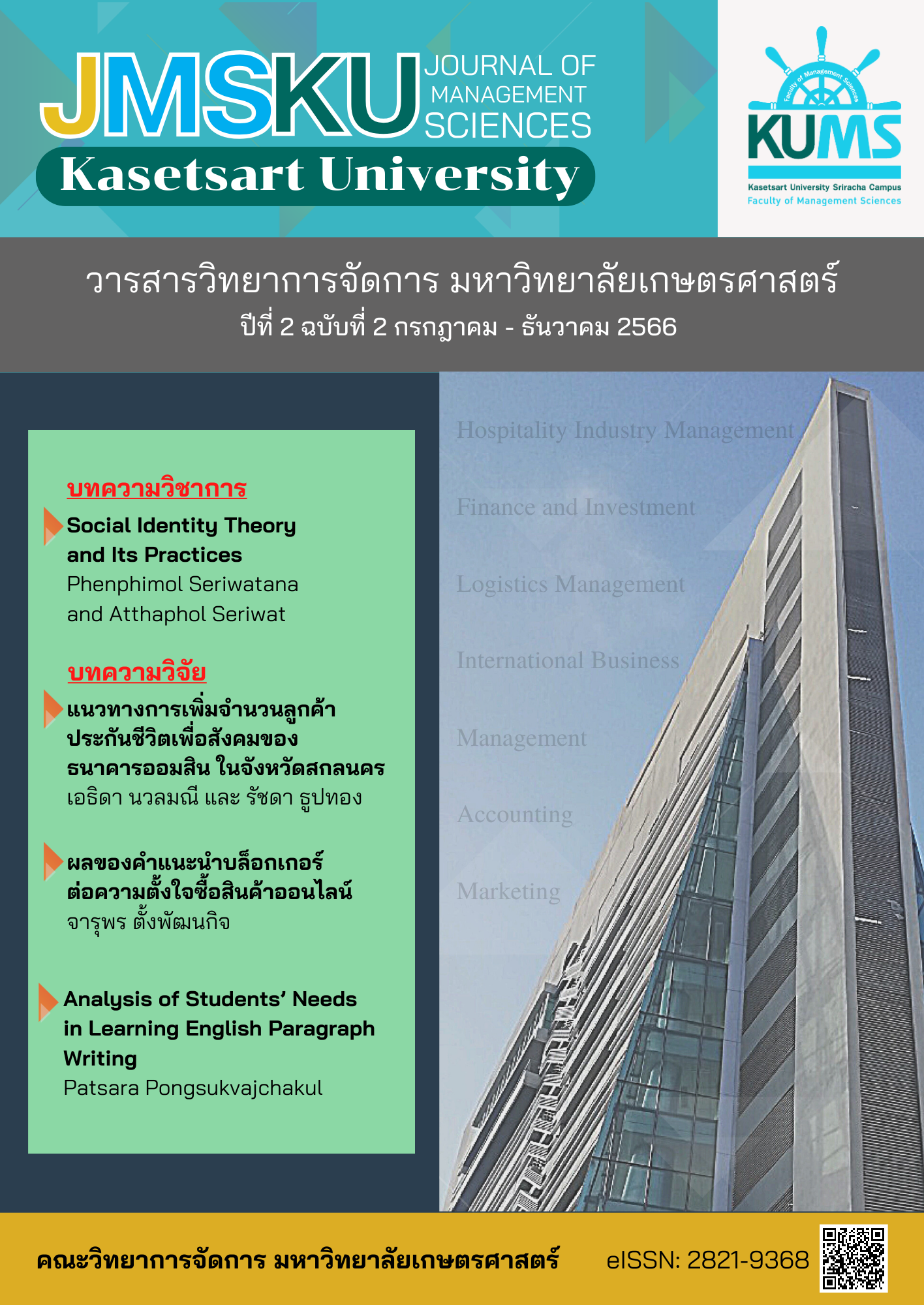Social Identity Theory in Practice
##plugins.themes.bootstrap3.article.main##
บทคัดย่อ
The article is based on literature review. It explores social identity and its related practices on human resources and organizational development (HROD). Social identity theory was originated in the social psychology field of study. It suggests that an individual is likely to maintain a positive identity through sorting others into different social categories, then, identifying himself/herself to particular category(ies) in line with his/her self-identity. To enhance self-esteem, people develop positive views and judgments about their own category (ingroup favoritism) and less favorable ones about other categories (outgroups). The article also lists a few research that had been conducted to test social identity theory. Because of its popularity, social identity theory has been put into practice in various fields including human resources, management, sociology, politics, economics, law, marketing, leadership, merger and acquisition, and others. Examples of the practices favoring ingroups (in line with social identity theory’s suggestion), as well as outgroups (contradictory to its suggestion) are also discussed; they are ethnocentrism, functional silos, leadership, cross-functional collaboration, merger and acquisition, and top management incentive based on the overall performance of multinational corporation (MNC). Finally, future research expanding HROD field are suggested. They include job survival rate of organizational newcomers, criteria of reference group and intergroup relation, intergroup conflict, learning transfer system inventory, and other HROD-related theories.
